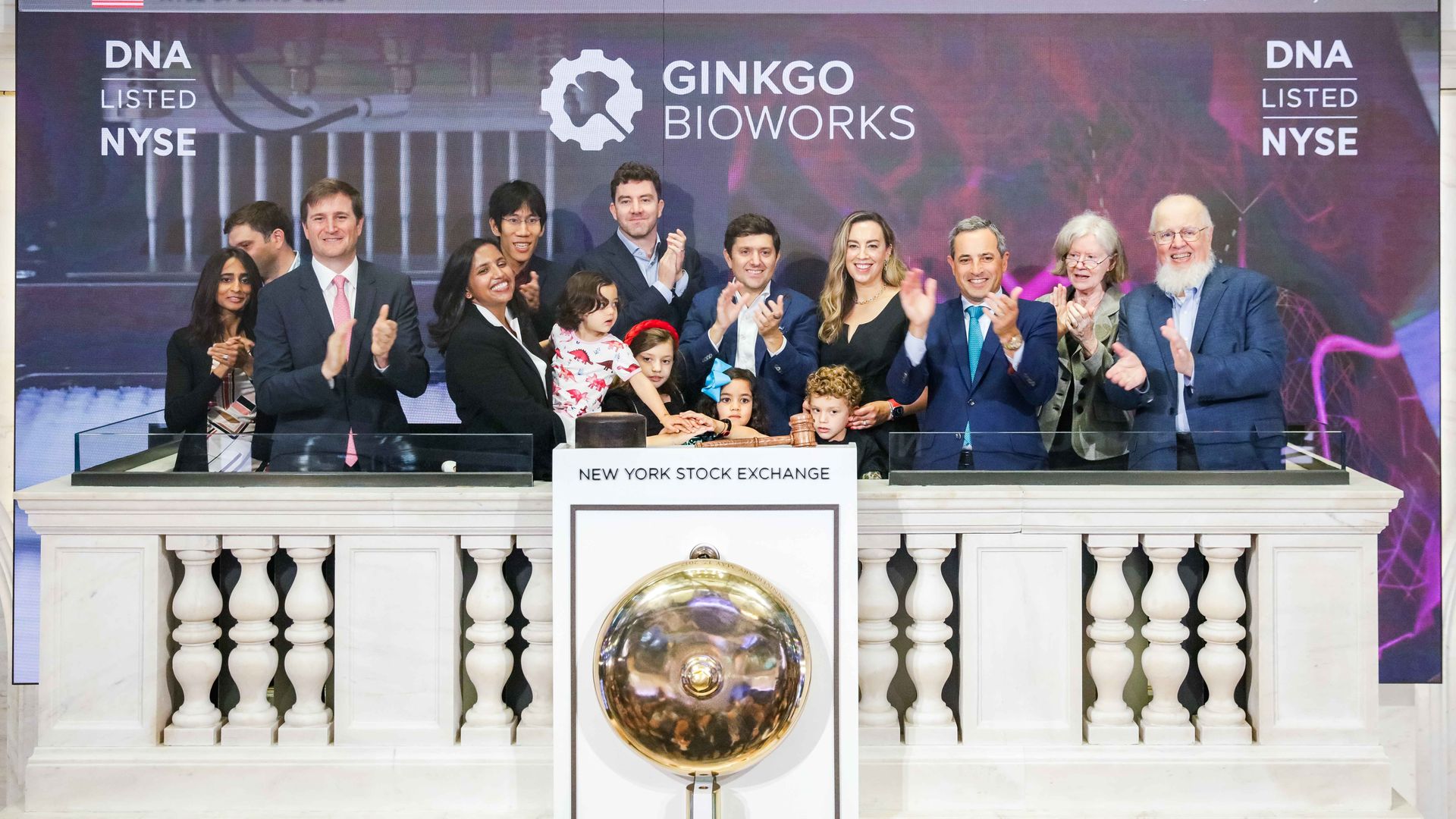Synthetic biology leader Ginkgo Bioworks goes public
Add Axios as your preferred source to
see more of our stories on Google.

Ginkgo Bioworks ringing the bell at the New York Stock Exchange. Photo: Ginkgo Bioworks
Ginkgo Bioworks — a Boston-based company that wants to make biology as easy to program as a computer — began trading on Friday after going public via a SPAC.
Why it matters: Ginkgo's multibillion-dollar offering is a milestone in the maturation of synthetic biology from a science to a true industry.
Driving the news: Ginkgo's shares — traded under the ticker symbol "DNA" — rose 6.6% on its first day of trading on the New York Stock Exchange, giving it a total market cap of more than $17 billion.
- That's a long way from its founding by a quartet of young MIT Ph.D.s and one veteran professor 13 years ago, at a moment when biotech startups were folding during the financial crisis.
- "Just as Netscape's IPO was a signal that the internet was going to be a thing, Ginkgo's IPO is a signal that programming biology is a thing, and people should pay attention to it," says Jason Kelly, Ginkgo's co-founder and CEO.
By the numbers: According to the industry newsletter SynBioBeta, synthetic biology startups raised nearly $8 billion last year from VCs and IPOs, more than double the level from 2019. This year funding could surpass $30 billion.
How it works: Ginkgo is applying engineering and automation in its $500 million South Boston foundry to what has been the artisanal craft of manipulating biology, whether in creating new fragrances or in optimizing the making of mRNA vaccines.
- The company is less interested in making products of its own than serving as a souped-up research platform for the entire synthetic biology industry, akin to what Amazon Web Services has been able to do for tech startups.
- "Starting a biotech company can cost so much money upfront and take so long," says Kelly. "We can use some of this capital to make it easier and unleash a lot of the latent energy that's out there."
Yes, but: When it merged earlier this year with the SPAC company Soaring Eagle, Ginkgo was valued at $15 billion — a figure some biotech investors believe is excessive for a company that has produced little revenue so far and has no blockbuster products of its own.
The bottom line: A bet on Ginkgo is less a bet on the company itself than on the possibility that synthetic biology — as Ginkgo says in its own marketing materials — can "grow everything."
Editor's note: This story has been corrected to reflect that the total market cap of Ginkgo including the value of the SPAC is more than $17 billion, not $2.6 billion.
